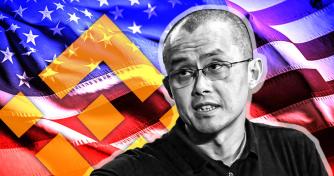Researching the Traders Behind the Cryptocurrency Mania
Cover art/illustration via CryptoSlate. Image includes combined content which may include AI-generated content.
To better understand who invests in crypto and ICOs, why they do it, and how exactly they make trades, in late 2017—at the peak of the crypto mania—I set out to study people behind the billions in investment and speculative trading.
Research Background
In the run-up market highs in December 2017, seemingly everyone was getting in on the action. Crypto was making front page news as investors of all stripes rushed into the market thinking it was a once-in-a-lifetime opportunity.
Many were enticed by increasingly easy—and unregulated—onramps, through apps and exchanges trading popular currency pairs. Then came the reckoning, where most lost their investments in a prolonged and protracted bear market. However, do people understand who “invests” in cryptocurrency? Not really.
In this study, I wanted to get behind the news headlines, the drama and trolls, the “market analyses,” and instead speak with real people to see what makes them tick. What follows here is a condensed and edited version of this research, recently published in my comprehensive book, Cryptocurrencies and Blockchains.
Who Trades Crypto?
There are many kinds of crypto traders, from every stripe of the Silicon Valley “crypto bros” to “bitcoin moms” and “crypto chicks.” For the purposes of my research, I interviewed six hobbyist traders and six professional traders, who were typically managers of large funds that invest exclusively in crypto.
The results of this study suggest that this investment market presents numerous unique challenges, but that nonetheless, these traders see themselves as pioneers in an exciting new investment class. I also discovered some unethical and borderline illegal activities, but for the most part, I found a community of people seeking greater regulatory clarity and increased professionalization.
Overall, these investors acted much like traditional venture capital investors, who make big, risky bets, with the hope for just a few successes and big payouts. Finance and capital in the world of cryptocurrencies and blockchain technologies present economic and social opportunity and risk, and, like the Gold Rush in the Wild West, there are fortunes to be made and lost.
New Exotics of the Second Decade
If it is true that high-flying financial instruments were, to borrow a phrase from anthropologist Bill Maurer, the “new exotic” of the first decade of the millennium, then surely cryptocurrencies and blockchains must be the new exotic for the second decade.
Cryptocurrencies and blockchain technologies are part of a larger “fintech moment,” and an important part, as they are increasing the already ongoing algorithmization and obfuscation of financial activities, exemplifying the virtual and performative nature of financial instruments and increasing the social, physical, and moral distance between money and its agents. As such, these global changes present real risks that reach far beyond the individual, perhaps clueless, investor.
Neither inherently bad or good, crypto is a powerful new financial engine for a broader financial technology sector with still largely unknown social and political characteristics and implications. But of course, speculative investing in crypto does pose serious individual financial risks, and sane financial advice would be to caution against it for all but the most risk-tolerant investors.
Huge Risks in Most Aspects
Practically speaking, there are huge risks in every part of the investment: exchanges and wallets are frequently hacked or mismanaged (many exchanges have disappeared due to ineptitude or outright criminality, often absconding with investors’ funds), investment scams are rampant, markets and prices are easily and commonly manipulated, many markets are so “thin” that trading is practically illiquid, usability and operations management are complex and error-prone (millions have been lost by simple and irreversible transaction errors), and trading fees are often high (see David Gerard’s hilarious and trenchant account of the many crypto hijinks). And of course, a big part of the reason investment is risky is that the crypto market in most jurisdictions remains largely unregulated, uncertain, and evolving.
Despite the considerable risk, many of the investors I spoke with believe the investment market is a rare opportunity. Of course, several reported making early mistakes, but all more than recovered in the runup to 2018, although in the bear market, some hedge funds have closed and many hobbyists have been unable to earn back their losses.
More generally, it remains to be seen whether the future market is going to be a massive new investment class, as the investors I spoke with believe, or something much smaller. Will the crypto market scale to the size of a mainstream financial derivative, like options (hundreds of trillions), or a subclass like NASDAQ technology stock index (trillions)? Or, perhaps crypto will emerge as a new kind of commodity, trading alongside the palm oil market (billions)?
How Hobbyists and Professionals Differ
I found that when hobbyists traded crypto, they characterized their activities in profoundly social terms; professional traders, on the other hand, characterized their activities in a more dispassionate and technical way. In a sense, this is not surprising.
What is remarkable is the degree to which hobbyists saw their “communities” as essential to their investment activities. For instance, many hobbyists reported active engagement in social media, although, importantly, almost never made trade decisions based on these social interactions. Instead, hobby traders actively collaborated in an “ideational” way, alerting each other to new ICOs, changes in software development teams, and new market opportunities. One participant had even formed a kind of “water cooler” group of like-minded individuals at her place of work, leveraging the shared interest in crypto as a way to enter into an all-male in-group.
The professional traders—being fund managers at the top of the staff hierarchy—relied on a cadre of employed researchers, employed largely to do the grunt work of checking on the validity of claims made by organizations and development teams. The professional crypto traders I spoke with seemed to work in a more individualist fashion than traditional hedge fund managers, who use a kind of distributed and social cognition, according to Donald MacKenzie’s longitudinal research. For the professionals, consulting and collaborating with other traders was limited, and in most cases non-existent.
Echoing a general and popular interest in ICOs during my interview period (which has since cooled considerably), hobby and professional traders alike sought ICOs extensively. Nonetheless, I found the investment use of ICOs and post-launch “coins” to be surprisingly diverse.
Hobby and professional traders sought ICOs as venture capital funds do for traditional startups, even in some cases taking leadership and board roles and advising on strategy. This was not exclusive to well-capitalized hedge funds either, several of the more committed hobby traders also expressed some participation in the leadership of ICOs and crypto companies—a surprisingly democratic financial opportunity. Hobby and professional traders also saw ICOs as relatively cheap and high-risk high-reward investments, explaining the need to be well informed about emerging companies and upcoming ICOs.
Indeed, from the outside, the distinction between insider trading, venture capital funding, and crypto trading are very blurry and problematic.
Once in a Lifetime
Most traders told me that their participation in the crypto market, despite the risks, was a once-in-a-lifetime opportunity, and a way to create “generational wealth.”
One professional trader expressed regret about missing the 1990s dot com boom—although, apparently not concerned that the boom led to a bust that ruined many investors—and saw the crypto boom as his generation’s big investment opportunity. Several traders also described the spirit of the market in terms of a “Wild West,” and that their roles were as “pioneers.” Expectedly, all traders spoke of crypto investing with considerable enthusiasm and commitment.
It seems nobody gets into this game half way.

























































